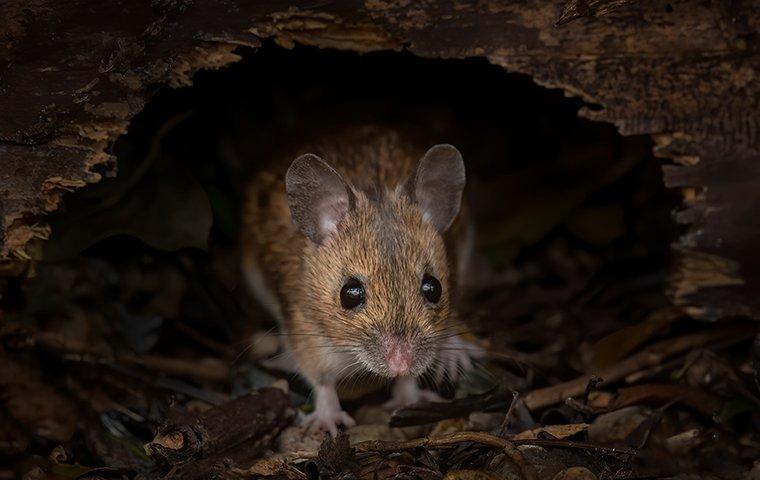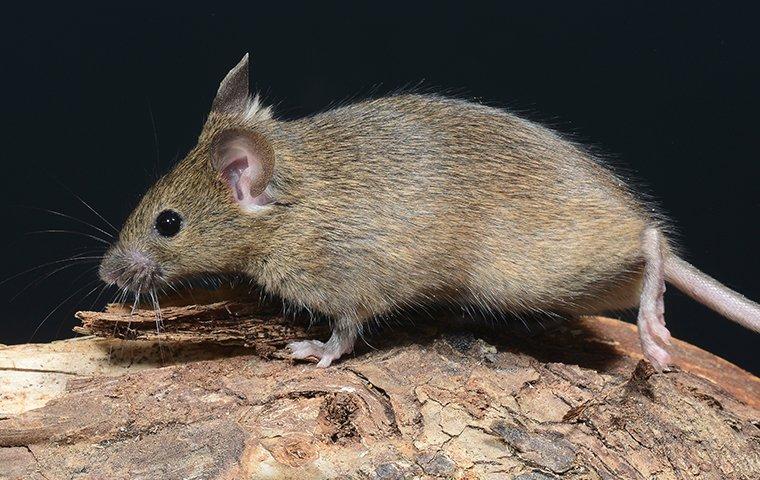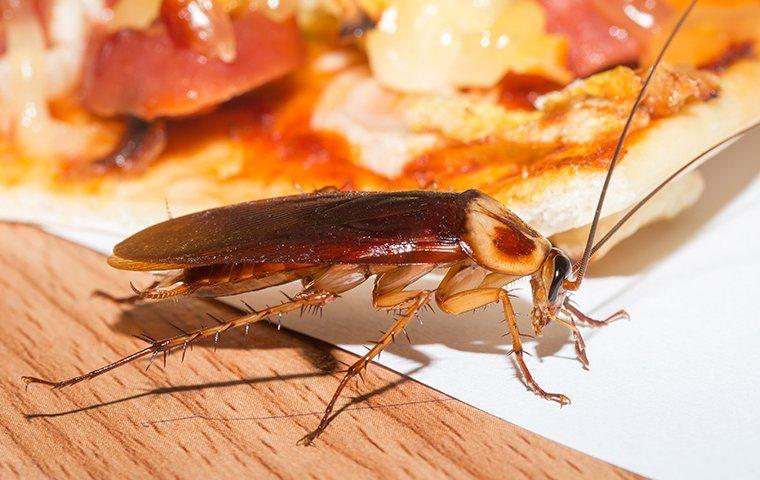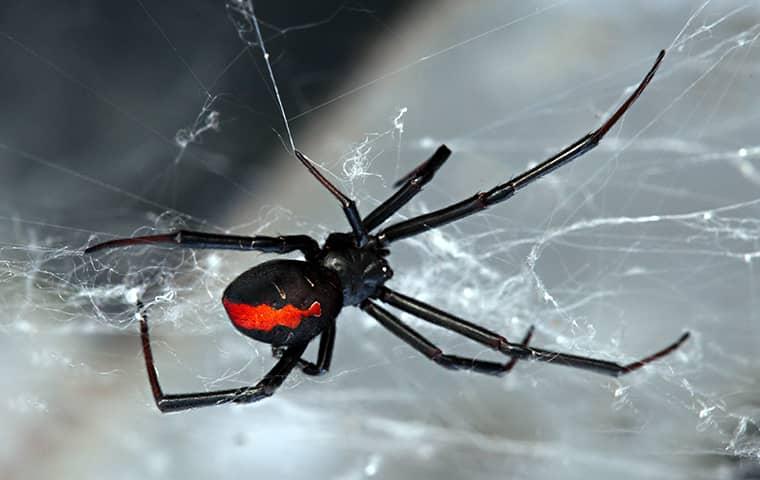Jacksonville Homeowners' Guide To Total Rodent Control
We have several rodent pests that come into our Jacksonville yards. But two are so common, they are synonymous with the term "rodent." When someone says, "I have a rodent problem," you know they're talking about rats or mice. Today, we'll focus on these two types of rodents, since they are such a big problem. We'll look at how you can identify rats and mice, why total rodent control is important, how to stop rodents before they come indoors, and the stress-free way to get rid of rodents. If you would prefer to speak with someone rather than read an article about rodent control, we're happy to assist. You can contact us by phone or through our contact page. Lindsey Pest Services offers the highest level of rodent pest control in Jacksonville. We can help!

How To Identify Common Types Of Rodents
It is rare to see a mouse or a rat. They prefer nocturnal activity. If you see one of these domestic rodents during the day, it is a warning that you have a large population on your property. But there are some rodents in our area that are active during the day and night. Voles are a good example. A vole looks like a fat, brown, furry mouse. But it isn't a mouse. It won't invade your home or get into your pantry or kitchen. It causes other problems. So let's start with how you can tell mice from voles and other rodents in Jacksonville.
Mice: The key features to look for on a mouse are large ears that have pale interior skin, and a long thing tail. A vole has short ears that sometimes blend in with the fur of its head and body. If you see a little critter with perky ears, it is likely a mouse. Properly identifying a mouse can alert you to a serious problem and help you target your control efforts. Mice will try to get into your home, so exclusion work is critical. Voles are lawn pests.
Rats: You won't have trouble telling a rat from other pests in your yard. We don't have any similar pests in Jacksonville. But some people have difficulty distinguishing a rat from a mouse. It is important to know the difference because rats are sometimes aggressive and may bite. Knowing which pest you have will also help you target your control efforts. Rats eat substantial food and are more easily deterred by protecting potential food resources. How do you tell rats from mice? Rats have stubby noses rather than pointed noses. Rats are also stocky animals with fatter tails than mice. If you see an animal that looks like a "long" mouse with a rounded snout, you're looking at a rat.
Most of the time, you won't see either of these pests. It is helpful to know how to identify them when you don't see them. Wait. How do you tell rats from mice if you don't see them? These two animals have a dirty habit; they leave their droppings in the places they explore. Long before you see a rodent, you'll likely see its droppings. Rodent droppings are black. Rat droppings are slightly larger than a grain of rice. Mice droppings are slightly smaller than a grain of rice.
Rodents Can Spread Disease And Damage Property
When considering total rodent control, you need to know why it is important. Rodent control isn't easy work. You'll have to roll your sleeves up and sweat a little. Here are a few reasons why you'll want to put in the effort.
- Rodents pick up germs in trash cans and other dirty places. They spread these germs to sensitive areas, such as kitchens and pantries.
- Rodents digest microorganisms that are expelled with their waste materials. As they leave droppings and urine in a home, they create conditions for illness.
- Rodents pick up ticks and fleas. On the body of a rodent, a tick or a flea can acquire a pathogen when it draws a blood meal. It can then spread the pathogen to humans.
- Rodents chew holes and damage property. These holes allow secondary pests into structures and create conditions for moisture damage and mold.
- Rodents chew on stored furniture and get into the cushions of furniture. They soil these items with their droppings and urine and damage them with their teeth and claws.
- Rodents chew on wires and gas lines. The potential for a house fire is always a concern.
We could say more, but you see the point. While rats and mice are domestic rodents, they are far from domesticated. They will not treat your property with respect and their presence in your home is a health threat.
How And Why Rodents Find Their Way Into Our Homes
Now that you know how to identify common rodents in Jacksonville and you know why total control is essential, let's look at what you can do about these pests. The secret to keeping rats and mice out of your home lies in understanding how and why they get in.
How Rodents Get In: Rats and mice are climbers. They can get up onto your roof and access your home from the top. Rats and mice are chewers. They can chew holes through pipe seals, exterior door seals, screens, and other building materials. Rats and mice are jumpers. They can leap from a tree branch to get onto your roof. Rats and mice are squeezers. The body of a rodent can compact and allow even big rodents to get through tiny gaps. Here are a few specific examples of how you can keep rodents out.
- Stop rodents from climbing up to your roof by putting wire mesh in your downspouts and by applying guards to any pipes that are attached to your exterior. Keep in mind that rodents can scale some exterior building materials and access vents and louvers. Ensure your vents have covers and your louvers are protected with hardware cloth.
- Stop rodents from chewing entry points by clearing clutter away from your exterior walls, trimming landscape vegetation, and applying hardware cloth to seal the void underneath your deck.
- Stop rodents from jumping onto your roof by trimming tree branches. If it isn't possible to do so, you may consider applying a two-foot piece of sheet metal around the trunks of trees that are near your home. Rodents can't find a claw hold on sheet metal.
- Stop rodents from squeezing into your home by applying expanding foam or caulking to gaps, holes, and cracks. You also deter rodents by replacing critical building materials, such as weatherstripping, door sweeps, screens, and vent covers.
Rodents in Jacksonville aren't likely to try and get into your home if they don't see a small entry point to make larger, or a pathway to exploit.
Why Rodents Get In: While holes and gaps invite rodents to enter your home, these entry points aren't the reason why they get inside. Rats and mice are motivated primarily by food. A mouse eats 15 to 20 times a day. Sure, it'll eat a crumb and be done. But that little mouse wants to live as close to a food source as possible. It won't want to live outside your home and go in and out. Here are a few ways food can attract rodents to your home:
- Open trash. The scent of trash is a dinner bell for rodents. It is critical to keep trash receptacles clean and covers securely attached.
- Nuts. Rats and mice love nuts. If you have nut-bearing trees, do your best to rake the nuts up as they drop.
- Seeds. Birds aren't the only animals that eat seeds from your feeders. If you have feeders, consider moving them away from your exterior so that the seeds don't fall next to your home where rodents are likely to find an entry point.
- Clutter. Rats and mice are drawn to clutter. They use ground clutter to move about like a blind man uses a cane. Ground rodents, like Norway rats, will dig out ground burrows underneath piles of objects. A clear yard is resistant to rodent activity.
Removing attractants is a strong deterrent. When combined with exclusion work, you may not need any more control. If conducive conditions in your yard are hard to remove or manage, a third layer of control is required. You'll need to capture and remove rats or mice.
The Trick To Stress-Free And Effective Rodent Control
It is a lot of work to catch rodents and remove them and there are many ways rodent control can fail. When you have to continue to battle rodents long after you've put the work in, it is stressful. Would you like a stress-free rodent control trick? Contact Lindsey Pest Services. We can take care of your rodent control issue for you. We have highly trained and super-friendly technicians on staff who can help. Reach out to us today to schedule a service visit. We're here to help you with all your Jacksonville pest concerns.












